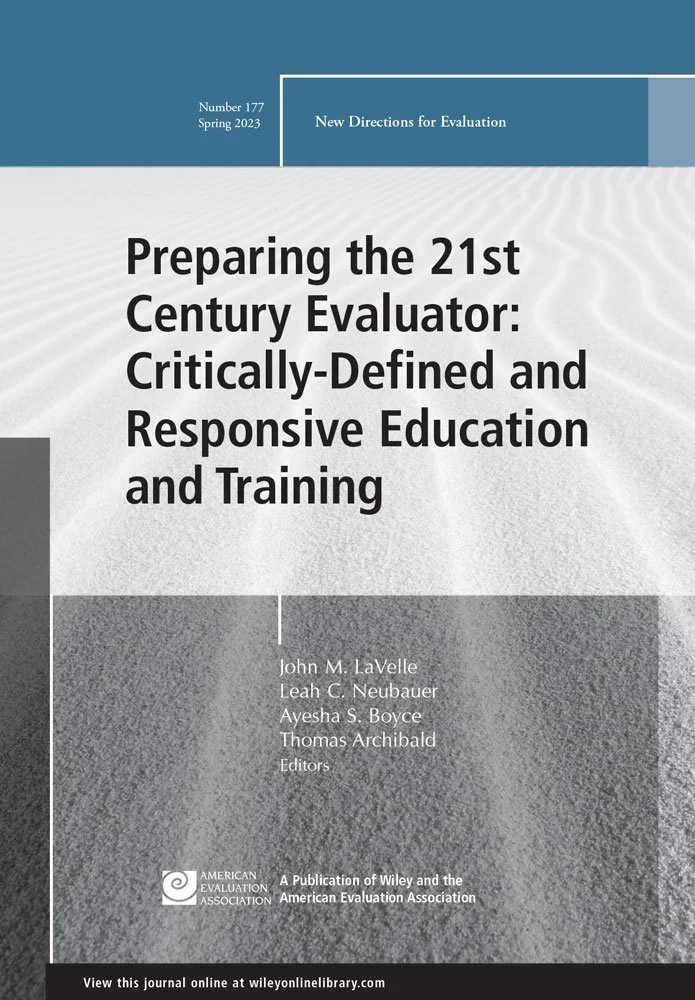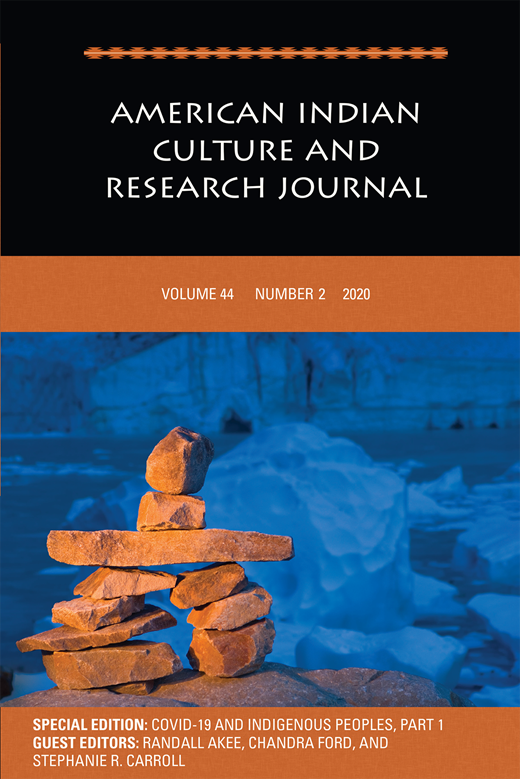Kinship pathways: Nurturing and sustaining resilient, responsible, and respected indigenous evaluators
-
Published: 25 May 2023
DOI: https://doi.org/10.1002/ev.20537
Abstract: In this chapter, we reflect upon the historical context and intersection of kinship and its relationality to Indigenous evaluators and their path to the evaluation profession. Indigenous evaluators with Indigenous lens perspectives are crucial to the field of evaluation. Our ability to ensure the success of current and future Indigenous evaluators requires that we reflect and examine both evaluation and Indigenous experience through an Indigenous lens. Our narrative concludes with suggestions that we move past the status quo of evaluation learning and teaching and embrace the concept of kinship as a component of addressing this complex and challenging issue within the field of evaluation.
Researching in the Age of COVID-19 Volume 3: Creativity and Ethics
-
Published: 23 Oct 2020
DOI:https://doi.org/10.51952/9781447360438.ch008
Abstract: COVID-19-related morbidity and mortality have disproportionately affected communities of colour across the United States. Originally dubbed the ‘great equalizer’, many individuals believed that COVID-19 affected everyone equally (Gupta, 2020). However, COVID-19 has exposed ethnic and racial differences in morbidity and mortality (Yaya et al, 2020). Early data showed that African Americans, Latinos and Native Americans were more likely to grow ill and die from COVID-19 than White Americans (Bassett et al, 2020). As data continues to emerge, it is evident that communities of colour bear a disproportionate burden of COVID-19. Thus, relevant COVID-19 data must be viewed as a foundation for conducting health disparities research.
Health disparities research identifies groups that receive inequitable access to care, treatment and resources (Chan et al, 2018). This research is necessary because it offers an in-depth understanding of the demographic framework (for example, race, ethnicity, gender, age, socioeconomic status, marital status and ability status) for addressing COVID-19 (Chan et al, 2018). Zastrow and Kirst-Ashman (2010) posited that academic researchers should encompass cultural competence and cultural sensitivity when investigating the behaviour and social environment of specific groups. See (2007) suggested that Eurocentric research may generate a misunderstanding of the issues that communities of colour face in light of COVID-19. Therefore, establishing multicultural and multidisciplinary research teams with an inherent understanding of health disparities is paramount to understanding communities of colour.
Stress and Coping among American Indian and Alaska Natives in the Age of COVID-19
-
Published: April 20 2021
DOI:https://doi.org/10.17953/aicrj.44.2.burton
Abstract: The COVID-19 pandemic compounds stressors of daily life among American Indian/Alaska Natives. This study investigated the impact of COVID-19 among American Indian/Alaska Natives and non-Hispanic whites by examining depressive symptoms, overall stress, resilience, and coping, utilizing the Transactional Model of Stress and Coping. Of the 207 individuals participating in this study, 109 identified as American Indian/Alaska Native and 98 as non-Hispanic white. Despite demographic similarities, American Indian/Alaska Natives exhibited more stressors related to COVID-19 as well as higher depressive symptom scores compared to non-Hispanic whites. Furthermore, COVID-19 stressors were more positively correlated with depressive symptoms for American Indian/Alaska Natives than non-Hispanic whites. For American Indian/Alaska Natives, the predominant coping processes identified were planful problem solving, escape-avoidance, and self-controlling. This study provides data to support programs and policies centered on improving the psychosocial health for American Indians/Alaska Natives and decreasing COVID-19-related health disparities.


